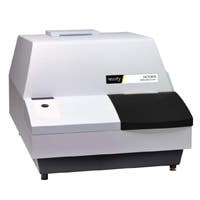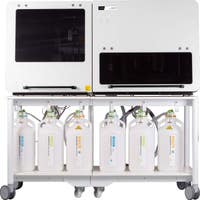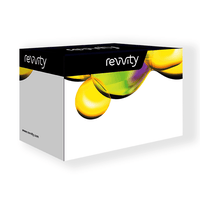Background
The deficiency of thyroid hormones in the neonate has been known since antiquity. Most cases prior to the 20th century were caused by iodine deficiency. Though still a prevalent nutritional disease worldwide, iodine deficiency rarely causes congenital hypothyroidism (CH) in western countries. Permanent neurodevelopmental deficits were known to occur when CH was not recognized and adequately treated by 2 to 3 months of postnatal age. Since the advent of newborn screening for CH in 1973, intellectual disability as a consequence of CH has been virtually eradicated among affected infants detected by screening within the first 2-3 weeks of age. The incidence is approximately 1:4,000 in iodine sufficient populations. The etiology in 70 to 80% of the non-familial cases is unknown. Maternal hypothyroidism may adversely affect the fetus to rarely cause findings of CH, or to be associated with mildly decreased IQ outcomes when maternal hypothyroidism occurs during the first half of pregnancy despite normal fetal and neonatal thyroid function.
Clinical Diagnosis
In greater than 95% of newborn infants with CH, there are no symptoms or signs of CH when the diagnosis is suspected by newborn screening. During the first 2 to 6 months of life, an affected, untreated infant with moderate to severe hypothyroidism may have persistent hyperbilirubinemia, edema, an umbilical hernia, enlarged fontanelles, and an absent, hypoplastic, normal or enlarged thyroid gland; then gradually develops lethargy, poor feeding, macroglossia, hypothermia, constipation, dry and sallow skin, hoarse cry, circumoral pallor, and mottling of the skin
Testing
There are two newborn screening tests performed in blood to detect hypothyroidism: thyroid stimulating hormone (TSH) and thyroxine (T4). When the thyroid gland is defective, known as Primary CH, TSH values are elevated and T4 values usually are low, although T4 values may be within the normal range in mild CH. Primary CH accounts for > 95% of cases. When there is defective hypothalamic or pituitary regulation of the thyroid gland, known as Central CH, T4 values are low; the TSH values may be low, normal, or mildly elevated.
Serum confirmatory tests usually are limited to 2 tests: TSH and free thyroxine, or FT4 (the small fraction of T4 that is not bound to serum proteins and represents the more biologically relevant measurement). An elevated serum TSH test is diagnostic of primary CH, the most common form of CH. A low serum FT4 with a normal or low TSH is diagnostic of central CH. Infants with central CH should have other tests to evaluate hypothalamic-pituitary function since ACTH/cortisol, growth hormone and/or gonadotropin deficiencies are associated with hypoglycemia (typically within hours of birth), and in male neonates, hypogonadism (micropenis, small testicles, cryptorchidism).
An image of the thyroid gland is often obtained by thyroid ultrasound and/or a radionuclide thyroid scan. These tests determine whether it is enlarged (goiter), absent (athyreosis), small (hypoplasia), or malformed and not in the normal location in the neck (ectopia). In these situations, the infant most often has a permanent form of primary CH. The thyroid gland may be normal in size and in the normal location in the neck (eutopic) on ultrasound, especially in familial causes of CH and transient CH.
Treatment
Treatment of hypothyroidism is relatively uncomplicated. As soon as tests to confirm the diagnosis of CH are obtained, levothyroxine (L-thyroxine) should be started promptly. Central CH may require additional management based on associated findings. Evaluation and monitoring should be performed in conjunction with a pediatric endocrine specialist.
Inheritance
Approximately 15 to 20% of affected infants with CH have one of several inherited forms of CH collectively known as Familial Thyroid Dyshormonogenesis. These diseases are caused by mutations in the enzymes that are required for thyroid hormone synthesis, metabolism and end organ responsiveness, and are inherited as autosomal recessive traits. With similar inheritance patterns the mutations in genes for the synthesis of hypothalamic-pituitary hormones and their receptors infrequently cause CH. There are very rare mutations in genes that regulate thyroid and pituitary gland embryogenesis. The mode of inheritance is unknown. Though not a cause of CH, thyroxine binding globulin (TBG) deficiency is caused by mutations in the gene that is required for the synthesis of this major plasma binding protein for T4. The mode of inheritance usually is X-linked, though autosomal recessive forms of TBG deficiency have been reported.
Instruments for congenital hypothyroidism































